Losses from retail crime are their highest for 10 years. How do our C-Store Champions cope with it?
Bob Gibson: During daytime hours I feel as safe as one can in my store. We have cameras outside and I always assess the situation as we open. We stay open until 9pm, but during the dark evenings some of the staff will bring down three of the shutters on the front of the shop and bring in any signs and so on at about 6pm. By doing this we feel more secure should any rowdy behaviour go on, and it deters young people from hanging around the area.
I don't like trading during the dark evenings, so we lock one of our double doors and make it like an obstacle course to either enter or leave the store. I know that this isn't good for business, but it may slow down any would-be robbers, and I know from experience that it makes life very difficult for a shoplifter on the run.
Susie Hawkins: The threat is always there, especially on a 24-hour site. Our Barnwood forecourt has an open-door policy at night - we don't serve through a hatch. We had a samurai sword incident in which a man came in at about 2am, went up to the counter and pulled out the sword. Luckily, the member of staff had just done a safe drop so he only got £20 and a couple of packs of cigarettes. The thief got six years in jail for that. The manager looked at the CCTV footage and recognised him - she's lived in Gloucester all her life. I don't think the police would have recognised him, which is a slight worry.
The staff member was brilliant - she was so calm. I think I would have been beside myself.
We've got digital CCTV and alarms - we do all we can to ensure people's safety. We have two or three people on at Barnwood at night, but we'd have only one person on at our smaller sites with a closed-door policy.
Lesley Brown: We feel reasonably safe. We have CCTV and a panic alarm by the till, so we've got procedures in place to make the staff feel more secure. We've now got shutters on the windows because the glass windows were broken twice in a month.
BG: Robbery must be everyone's first worry. We used to have a problem with anti-social behaviour, but I've got that under control. Now shoplifting is the main problem. It generally falls into three categories: schoolchildren, travellers and the off-licence shoplifter. We have a system among some local businesses to alert us to when travellers are in the area.
SH: Shoplifting; the law is on their side so they don't care. There's no deterrent so they get away with it. The abusive nature of some customers is a worry as well. Generally, shoplifters are so confident and know we can't do anything even if we catch them.
LB: Anti-social behaviour is top of the list. Quite often, it's related to a tobacco or alcohol purchase refusal and the youth might bang or spit on the window. We probably get an incident a week. We have a high proportion of youngsters aged 13 to 19 in our area who cause the problems.
Thankfully, we've had no violent attacks - it's more verbal or criminal damage. When the windows were broken it made us feel like giving up - we were thoroughly demoralised. We felt that we were putting so much effort into the community - we're not just doing it for ourselves - but it's not appreciated. When we calmed down, we realised it was just a couple of idiots and drink and drugs had played a part, and that they weren't targeting us particularly, it was just their way of lashing out.
BG: We always call the police. I find that if we call the police on the 0845 number it's a total waste of time. First of all, they ask so many silly questions which could wait till later, so the offender usually gets away. Then when we get through these questions I am told that other items may be prioritised over mine and that an officer will call when available. They may turn up within the next few days, but quite often it's at least a week.
We called 0845 on December 12, 2007 to report a shoplifter who had stolen a bottle of wine, and again the day after to report the same person stealing a bottle of cider. It took 20 days for an officer to call and take a statement.
SH: We always report shoplifters to the police and our CCTV evidence is pretty good. But the police are generally not interested and we're lucky if the shoplifter gets a fixed penalty notice.
LB: We always report adult shoplifters, but speak to the parents if it's a child is involved.
BG: I have been invited by our beat officer to join a committee made up of the police and councillors, to talk about local issues and how they can be improved. That was three months ago and we haven't had a meeting yet. Our local beat officer and the police support officer are both very good, and I find it better to call them direct on their mobile. If called they will turn up as soon as possible on their push-bikes.
We also have community officers, paid for by the local council. They are wonderful. They look in at regular intervals during the day and night. They travel on foot and get very involved in the local community, schools, clubs and so on. They know most people by name and take note of everything. When called they can be here within a few minutes. However, the local council has decided to do away with them this year, in a bid to save money.
SH: Response isn't good. I can understand it to some extent because the police have other priorities, but when you look at what crime stems from, you'd think the common-sense approach would be to start at the grass roots level and that might stop some of the bigger crime. Gloucester isn't a great place in terms of crime levels. We've been targeted or had problems at Barnwood so have our own police protocols in place. We report the crime to the police, complete one of our pre-printed statements and they come and pick it up, along with the evidence. It reduces the amount of time we have to spend giving statements - it works very well.
We were keen to do something proactive and I think we were starting to affect Gloucester's crime statistics because we were reporting everything, so it became a priority for the police as well. It's helped no end in terms of efficiency, but has it helped in convicting? Probably not. More often than not the criminals get away with a fixed penalty.
LB: We've put a lot of measures in place to help the situation. We've linked up with the police and have a Partners and Community Together box in the shop, which gives customers the opportunity to voice their crime issues by writing them on a card and putting it in the box. They can do it anonymously if they want. We also have two police community support officers in the area, with whom we have a good relationship, as well as the community beat officer. They organise events to help the youngsters in the area, but unfortunately you don't get to those who need to do something about their behaviour. We also invited our local MP into the store on a Friday night to get a feel for the issues we face.
BG: I've had no personal involvement with them, but I can see that those on such orders have no respect for the local police; they mock them. I deal with any anti-social behaviour in the parade myself. I usually know at least one of any group that may gather. I take him to one side and ask him to take the others off to one of the other shopping parades. If it's a case of playing football outside the shops,
I don't let it happen. I just talk to one or two of them and ask them to play in the car park.
SH: If a shoplifter is nicking £100 and gets a £60 or £80 fixed penalty notice, they still gain. It's not seen as a deterrent. The shoplifters are happy to get away with a fine.
There's supposed to be a system whereby if someone is caught three times, it's taken further, but that doesn't seem to happen. We've used our own banning orders for anti-social behaviour. If a group of kids turns up, we try to disperse them as quickly as possible.
LB: ASBOs operate in our area in conjunction with the local housing association, but I've had no experience of them. We do our own banning orders. I caught an 11-year-old shoplifter recently and my reaction was to shout at him and he paid for the item.
We usually speak to the parents if it's children. We ban the child from the store for about three months, and then review it with the parents. If the parent's attitude is 'it's not my problem' I will take it further. If it's an adult shoplifter, that's a different story and we always prosecute.
BG: Yes, the system has been updated to the latest digital equipment. We've added more cameras - nine inside and three outside, front and back. We now print images from the system for our Name & Shame board. I can watch the cameras wherever I am, via my laptop. The cost was about £9,000.
SH: Security is a constant investment. We always look at the different things we can do. We tried tagging, but the professional shoplifters have ways around that. We've had plain clothes security guards on and have had good results. We tried uniformed security guards as well, but that's not as effective because the shoplifters obviously know who they are. It's not cost effective to do it all the time, though, as people eventually get to know who the plain clothes guards are as well. We stop having guards for a while and when the shoplifting gets bad again, we wheel in a new one. Finding a reliable security firm is quite difficult, however. The hours are unsocial - 8pm till 4am - and it's quite dull work, I suppose. It's a bit of a cost to us - we pay £10-£12 an hour - but it's a deterrent.
LB: We installed the shutters on the windows in January, which cost £2,500. We had to do that partly because our insurance premiums went up after the windows were broken.
How safe do you and your staff feel in the store, particularly when it's late at night?
Bob Gibson: During daytime hours I feel as safe as one can in my store. We have cameras outside and I always assess the situation as we open. We stay open until 9pm, but during the dark evenings some of the staff will bring down three of the shutters on the front of the shop and bring in any signs and so on at about 6pm. By doing this we feel more secure should any rowdy behaviour go on, and it deters young people from hanging around the area.
I don't like trading during the dark evenings, so we lock one of our double doors and make it like an obstacle course to either enter or leave the store. I know that this isn't good for business, but it may slow down any would-be robbers, and I know from experience that it makes life very difficult for a shoplifter on the run.
Susie Hawkins: The threat is always there, especially on a 24-hour site. Our Barnwood forecourt has an open-door policy at night - we don't serve through a hatch. We had a samurai sword incident in which a man came in at about 2am, went up to the counter and pulled out the sword. Luckily, the member of staff had just done a safe drop so he only got £20 and a couple of packs of cigarettes. The thief got six years in jail for that. The manager looked at the CCTV footage and recognised him - she's lived in Gloucester all her life. I don't think the police would have recognised him, which is a slight worry.
The staff member was brilliant - she was so calm. I think I would have been beside myself.
We've got digital CCTV and alarms - we do all we can to ensure people's safety. We have two or three people on at Barnwood at night, but we'd have only one person on at our smaller sites with a closed-door policy.
Lesley Brown: We feel reasonably safe. We have CCTV and a panic alarm by the till, so we've got procedures in place to make the staff feel more secure. We've now got shutters on the windows because the glass windows were broken twice in a month.
Which offences are you most concerned about?
BG: Robbery must be everyone's first worry. We used to have a problem with anti-social behaviour, but I've got that under control. Now shoplifting is the main problem. It generally falls into three categories: schoolchildren, travellers and the off-licence shoplifter. We have a system among some local businesses to alert us to when travellers are in the area.
SH: Shoplifting; the law is on their side so they don't care. There's no deterrent so they get away with it. The abusive nature of some customers is a worry as well. Generally, shoplifters are so confident and know we can't do anything even if we catch them.
LB: Anti-social behaviour is top of the list. Quite often, it's related to a tobacco or alcohol purchase refusal and the youth might bang or spit on the window. We probably get an incident a week. We have a high proportion of youngsters aged 13 to 19 in our area who cause the problems.
Thankfully, we've had no violent attacks - it's more verbal or criminal damage. When the windows were broken it made us feel like giving up - we were thoroughly demoralised. We felt that we were putting so much effort into the community - we're not just doing it for ourselves - but it's not appreciated. When we calmed down, we realised it was just a couple of idiots and drink and drugs had played a part, and that they weren't targeting us particularly, it was just their way of lashing out.
Do you always report shoplifters to the police?
BG: We always call the police. I find that if we call the police on the 0845 number it's a total waste of time. First of all, they ask so many silly questions which could wait till later, so the offender usually gets away. Then when we get through these questions I am told that other items may be prioritised over mine and that an officer will call when available. They may turn up within the next few days, but quite often it's at least a week.
We called 0845 on December 12, 2007 to report a shoplifter who had stolen a bottle of wine, and again the day after to report the same person stealing a bottle of cider. It took 20 days for an officer to call and take a statement.
SH: We always report shoplifters to the police and our CCTV evidence is pretty good. But the police are generally not interested and we're lucky if the shoplifter gets a fixed penalty notice.
LB: We always report adult shoplifters, but speak to the parents if it's a child is involved.
What's your experience of police response and have you taken steps to improve your relationship with the police?
BG: I have been invited by our beat officer to join a committee made up of the police and councillors, to talk about local issues and how they can be improved. That was three months ago and we haven't had a meeting yet. Our local beat officer and the police support officer are both very good, and I find it better to call them direct on their mobile. If called they will turn up as soon as possible on their push-bikes.
We also have community officers, paid for by the local council. They are wonderful. They look in at regular intervals during the day and night. They travel on foot and get very involved in the local community, schools, clubs and so on. They know most people by name and take note of everything. When called they can be here within a few minutes. However, the local council has decided to do away with them this year, in a bid to save money.
SH: Response isn't good. I can understand it to some extent because the police have other priorities, but when you look at what crime stems from, you'd think the common-sense approach would be to start at the grass roots level and that might stop some of the bigger crime. Gloucester isn't a great place in terms of crime levels. We've been targeted or had problems at Barnwood so have our own police protocols in place. We report the crime to the police, complete one of our pre-printed statements and they come and pick it up, along with the evidence. It reduces the amount of time we have to spend giving statements - it works very well.
We were keen to do something proactive and I think we were starting to affect Gloucester's crime statistics because we were reporting everything, so it became a priority for the police as well. It's helped no end in terms of efficiency, but has it helped in convicting? Probably not. More often than not the criminals get away with a fixed penalty.
LB: We've put a lot of measures in place to help the situation. We've linked up with the police and have a Partners and Community Together box in the shop, which gives customers the opportunity to voice their crime issues by writing them on a card and putting it in the box. They can do it anonymously if they want. We also have two police community support officers in the area, with whom we have a good relationship, as well as the community beat officer. They organise events to help the youngsters in the area, but unfortunately you don't get to those who need to do something about their behaviour. We also invited our local MP into the store on a Friday night to get a feel for the issues we face.
Have you had any involvement in fixed penalty notices or anti-social behaviour orders/acceptable behaviour contracts? What do you think of them?
BG: I've had no personal involvement with them, but I can see that those on such orders have no respect for the local police; they mock them. I deal with any anti-social behaviour in the parade myself. I usually know at least one of any group that may gather. I take him to one side and ask him to take the others off to one of the other shopping parades. If it's a case of playing football outside the shops,
I don't let it happen. I just talk to one or two of them and ask them to play in the car park.
SH: If a shoplifter is nicking £100 and gets a £60 or £80 fixed penalty notice, they still gain. It's not seen as a deterrent. The shoplifters are happy to get away with a fine.
There's supposed to be a system whereby if someone is caught three times, it's taken further, but that doesn't seem to happen. We've used our own banning orders for anti-social behaviour. If a group of kids turns up, we try to disperse them as quickly as possible.
LB: ASBOs operate in our area in conjunction with the local housing association, but I've had no experience of them. We do our own banning orders. I caught an 11-year-old shoplifter recently and my reaction was to shout at him and he paid for the item.
We usually speak to the parents if it's children. We ban the child from the store for about three months, and then review it with the parents. If the parent's attitude is 'it's not my problem' I will take it further. If it's an adult shoplifter, that's a different story and we always prosecute.
Have you invested in any new security equipment in the past two years?
BG: Yes, the system has been updated to the latest digital equipment. We've added more cameras - nine inside and three outside, front and back. We now print images from the system for our Name & Shame board. I can watch the cameras wherever I am, via my laptop. The cost was about £9,000.
SH: Security is a constant investment. We always look at the different things we can do. We tried tagging, but the professional shoplifters have ways around that. We've had plain clothes security guards on and have had good results. We tried uniformed security guards as well, but that's not as effective because the shoplifters obviously know who they are. It's not cost effective to do it all the time, though, as people eventually get to know who the plain clothes guards are as well. We stop having guards for a while and when the shoplifting gets bad again, we wheel in a new one. Finding a reliable security firm is quite difficult, however. The hours are unsocial - 8pm till 4am - and it's quite dull work, I suppose. It's a bit of a cost to us - we pay £10-£12 an hour - but it's a deterrent.
LB: We installed the shutters on the windows in January, which cost £2,500. We had to do that partly because our insurance premiums went up after the windows were broken.








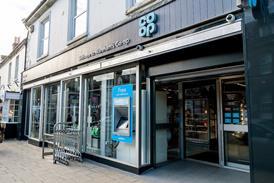







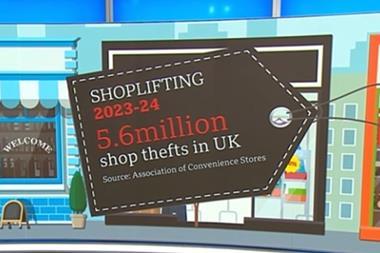
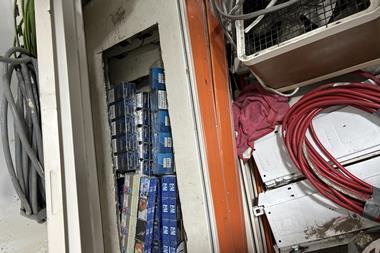

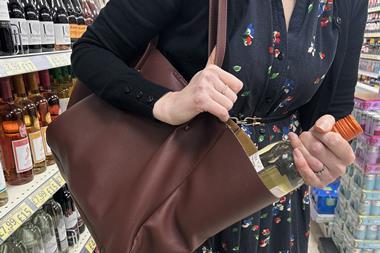

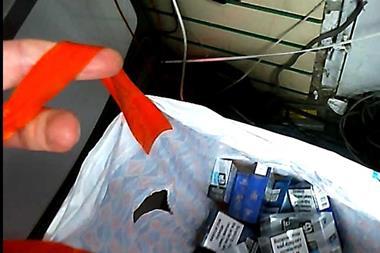
No comments yet